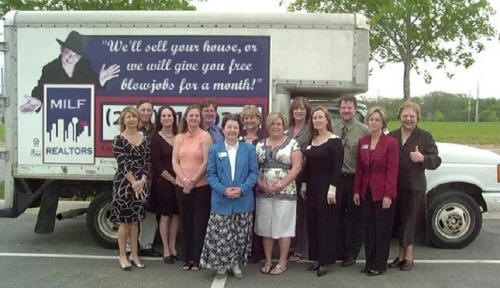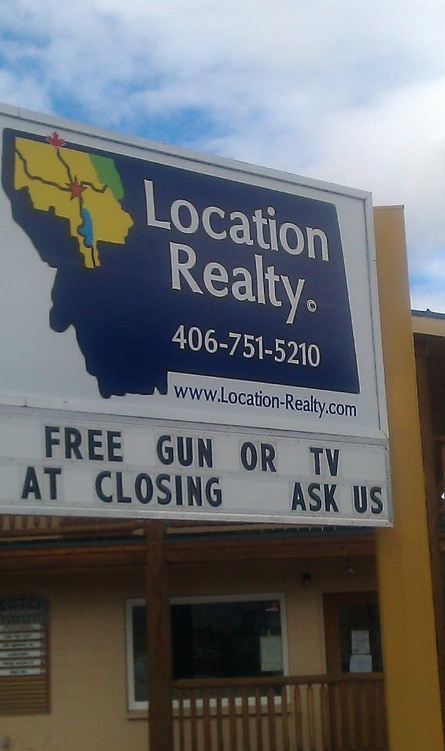Click here to GET BLOWN AWAY at Live REIN™ Events

I attended my first REIN event in April 2008. I attended what was then called the REIN ‘Quick Start’ Event. It was three days of real estate education. I was totally skeptical of the event prior to attending.
I had read about Don R. Campbell in the Toronto Star Newspaper about a year prior to attending the event. I was really into real estate at the time, and was reading whatever I could find about real estate in order to learn more. I owned one rental property at the time and I wanted to find out how I could buy more rental properties.
The article that I read about Don R. Campbell and his company, The Real Estate Investment Network, also known as REIN, peaked my interest. I cut out the article from the newspaper and put it in a little real estate binder that I made which contained other real estate related newspaper clippings. I decided that I would attend the next REIN Live Event the next time The Real Estate Investment Network was in Toronto.
I had never attended any real estate related seminar before so I really wasn’t sure what to expect.
I had no idea that over 4 years later, I would still be connected with REIN.
There are 3 major live events that REIN organizes. They are:
- REIN Monthly Workshops
- REIN ACRE Weekends
- REIN All Day Western Canada Conference
What are the REIN Live Events?
I have attended both REIN Monthly Workshops as well as the REIN ACRE weekends. I have not attended the All Day Western Canada Conference, so I cannot provide you with any insight on that.
What is the purpose of REIN Monthly Workshops?
REIN Monthly workshops are meetings that take place once a month in some major Canadian cities such as Toronto, Edmonton, Calgary and Vancouver. There are usually about 200 t0 250 people that attend these events. The people that attend these events are either new real estate investors, experienced real estate investors or people looking to buy their first rental property.
The purpose of these meeting is simply to learn about investment real estate. Specifically, where to buy, what to buy, and how to finance your purchase.
What about the REIN ACRE Weekend?
I would compare the REIN ACRE Weekend to a 3 day intense crash course in real estate investing. There are usually a lot more people that attend the REIN ACRE Weekend as this is one of The Real Estate Investment Network’s flag ship events. At this event, I would say that there are about 500 people throughout the weekend.
Who else attends the REIN Monthly Workshops and the REIN ACRE Weekends?
In addition to aspiring and existing real estate investors, there are a wide array of other people that attend these events. There are often Real Estate agents, Mortgage brokers, Insurance reps, property managers, HVAC specialists, flooring specialists and contractors.
Are the REIN Live Events Valuable?
For the most part I would say yes. However, I think that they are more valuable to people who are looking to get started with real estate investing than they are to people who are experienced investors already.
I found attending these REIN events helpful because I needed to learn from more experienced people that had accomplished something that I was trying to achieve.
As time went on though and the more experienced I became as a real estate investor, the less valuable I found the REIN Live Events, such as the Monthly Workshops.
What results did I get attending the REIN Live Events?
Throughout the 3 years or so that I was attending REIN Live Events I ended up purchasing 4 rental properties. I would not have been able to purchase these properties if it were not for some of the great people that I met at these events. In particular, my mortgage broker who was the individual who taught me how to finance multiple properties.
I made some great friends that are also real estate investors that I am still in touch with today.
Through a fellow real estate investor I also got introduced to an HVAC specialist who over the course of 3 years has replaced 2 furnaces and 1 air conditioner for me. Through this one contact alone I have saved thousands of dollars in repairs. This month he just installed a new furnace for me for $1700 (before tax), the next closest quote I got from a competing company was $3300.
What are the Negatives about REIN Live Events?
Like I mentioned earlier, I think these events are good for people that are just starting out with real estate investing. The events can also be good for intermediate investors who need a little boost of confidence in order to get going.
One big negative that I noticed was that there were a lot of people that attended these events month after month after month, but did not invest in real estate. For some of these people, attending the events was more of a social outing than anything else.
Another negative point, which seems kind of silly as I write this is how LATE the events went on into the night. The REIN Monthly Workshop events always fell on a weekday night, and they would end pretty late, sometimes around 11:30pm or 12pm. That does not too late, does it? However if you factor in some schmoozing after the event with fellow investors and a 30 minute drive home, sometimes I was getting home around 1am or later.
What would I change or improve about the REIN Live Events?
For starters, if I could change one thing, I would end the events much earlier. If I was in charge, I would end the REIN Monthly Workshops at 10am, so that people could get home at a decent time in order to wake up early the next morning and be refreshed for the work day.
I would also change things such that there would be more direct networking time with key people. I would like to set up ‘booths’ or ‘stations’ where knowledgeable mortgage brokers, real estate agents, lawyers, etc. could sit at and be available to speak to participants. If you were interested in speaking to a particular person, you could visit them at their booth. This booth system that I speak of is done at the REIN ACRE Weekend, but is not done during the REIN Monthly Workshops. I would implement the booths at the Workshops as well.
What is the URL?
You can access more information on these events by following this link.
How Much Do The Events Cost?
The 3 events range in price from $199 to $587 with the Guest Passes for REIN Monthly Workshops costing $199.
What is the best part about REIN Live Events?
The best part about REIN Live Events is that you are able to learn financing strategies directly from mortgage brokers. These mortgage brokers are able to not only help you buy your first rental property, but even multiple rental properties. Not only that, REIN also recommends which cities and neighbourhoods are the best places to buy rental properties. At the event, you are able to speak directly to individuals who own properties already in these particular cities and neighbourhoods, and thus you are able to get from them first hand information on their experiences.
This was exactly the situation I found myself in. At the Live Events I met a mortage broker who I am still in touch with today. He was able to help me finance multiple rental properties which enabled me to buy 4 properties in 3 years. I also networked and made friends with people who were investing in a number of different cities. I was able to hear directly from them their experiences (good and bad), which in turn helped me to decide what city I wanted to invest in.


What Alternatives are there to the REIN Live Events?
People are busy and not everyone wants to attend live events. Further to that, not everyone is an extroverted person, and interacting directly with people is quite uncomfortable to some. For those people that don’t want to attend live events or don’t have the time, I would recommend to them some of the REIN Home Study Courses. The home study courses available are:
- ACRE System Home Study
- Joint Venture Secrets
- Multi Family Investing Secrets
How much do these courses cost?
The REIN Home Study courses range in price from $587 to $987. The best value I would say is the ACRE System Home Study course which is the cheapest at $587. Unless you are more of an advanced real estate investor, I would not recommend the Joint Venture Secrets or Multi Family Investing Secrets. If you are an intermediate or advanced investor then the later 2 courses would be right up your alley.
What is the URL?
You can access more information on these events by following this link.


Which is more affordable, the REIN Live Events or the REIN Home Study Course?
In terms of value and affordability, I personally believe the guest pass for the REIN Monthly Workshop makes the most sense. By attending the Workshop, you get a sense and a flavour of what you can expect from REIN without over committing and overspending right out of the gates. If you have a limited budget, this is smartest route to take.
Can the REIN Live Events and/or REIN Home Study Courses Make You Money?
The simple answer to this is YES.
If you are motivated and you put what you learn about real estate investing to use, you will earn a great return on your investment. I personally have made thousands of dollars by implementing what I learned about real estate investing through the REIN Live Events. Then again, there are those people who have not made any money after purchasing these products. Just like with any aspect of life, you have those people who succeed and those people who fail…
How to ensure you are Successful!
If you are new to real estate investing and you want to buy your first rental property the Live Events will guide you on which areas to buy properties in as well as give you an education on the type of mortgage brokers you need to utilize in order to obtain financing on your rental properties.
Even if you already own a property or maybe two, the Live Events are a great way to become connected with a good support group of fellow real estate investors, who can provide you with support when the going gets tough with your real estate investments.
If you have the resources to attend one of the events or take one of the courses, it is money well spent. I am glad that I spent the money myself because I would not be where I am today as a successful real estate investor, had I not.
When you do decide to go to one of the upcoming Live Events or study one of the courses, it is a smart move to involve your spouse or a close friend.
Learning about real estate investing together is more fun and it ensures that you are on the same page with those people that you care about the most.
REIN Money Back Guarantee
The best part here is that REIN has a money back guarantee. If you are not satisfied with their products, you can return them and get your money back.
Happy Investing!
Regards,
Neil Uttamsingh
Click here to GET BLOWN AWAY at Live REIN™ Events

























